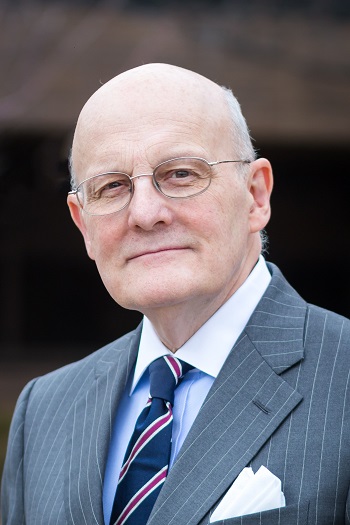by Professor Christopher P. Woehrle
Supporters with bequest intentions often can be motivated to accelerate their philanthropy during their lifetime. The donor enjoys seeing a personal vision being fulfilled, and the institution showcases its abilities as a good steward of current and future gifts. Ordinarily, connecting a donor’s passion that aligns, at least partially, with a charity should produce a mutually satisfying relationship. Let’s examine a real-life example of such an alignment.
A 1965 graduate of a nationally eminent law school, attorney Lance J. Johnson had a passion for developing the jurisprudence on children and their legal rights. The law school is known as one of the leading law schools in the United States and home to an interdisciplinary Child Advocacy Law Clinic, so it would seem a plausible fit for a donor to raise the theoretical underpinnings of legal rights for children.
Mr. Johnson contributed $150,000 to create a fund supporting a biennial workshop bearing his name about children and the law. However, he felt these workshops were hosted only sporadically. His requests to law school professors for an accounting were directed to the internal legal counsel. He balked at the school’s request to travel from his Minnesota home to Ann Arbor to resolve the dispute about whether his donation was properly spent. The school, through its spokesperson, claimed confidence the commitment was honored and funds were used appropriately.
Unsatisfied, Mr. Johnson advised the school he was removing them from a $2M revocable bequest intention. He also played a card every charity should dread.
He asked the attorney general for the state of Michigan to “closely examine what the law school has done with my donated funds, as well as those of any other donor who thinks they might have been misled by the law school. The School (misled) me about how they would spend my more than $150,000 donation. … I have no other choice but to revoke the additional $2 million gift that was to be paid upon my passing.”
Without having access to any gift agreements between the parties, I wonder, could this situation have been avoided? When fundraisers speak of “complex gifts,” many are referring to the nature of the assets. Perhaps it is real estate, privately held equity or partnership interest. But at times the deliverable can be complex.
Were Mr. Johnson a legal client seeking counsel before making the gift, I would try to discern how often the workshop is to be held, an acceptable format for it and agreement with the institution on deliverables. Is it publishing in peer-reviewed journals? A minimum level of Social Science Research Network citations? What should be included in the annual report on expenditures for the project?
What, if anything, can be learned by both charities and potential donors about this case?
- Even a gift that matches the mission of the recipient will be deemed unsuccessful to a donor if the donor feels unsatisfied. The gift agreement should define “what success looks like” to the donor. The more complex the deliverable means the greater the risk of donor unfulfillment especially if there is the creation or expansion of an existing program.
- A regular annual report on expenditures is preferable to asking lawyers to intervene. Charities should regard it as much for their peace of mind as well as that of a donor.
- A charity should assume a disgruntled donor will reach out to the state attorney general and may commence legal proceedings. Rather than incur the negative publicity of a donor alleging poor stewardship, there should be granted to the charity a “right to cure any defects of administration and stewardship.”
For more background regarding this dispute, click here.
For an excellent overview in creating a well-designed gift agreement, see the article in the October 2019 issue of Trusts & Estates by Warren K. Racusin.
In part two of this article, posted on our blog, I will examine how the stewardship of seemingly routine gifts to endow scholarships and professorships can go horribly wrong even when the donor is sophisticated, very grateful and involved at the highest level with fundraising experts. Click here for part two. ■
 Christopher P. Woehrle is Professor and Chair of the Tax & Estate Planning Department at the College for Financial Planning in Centennial, Colorado.
Christopher P. Woehrle is Professor and Chair of the Tax & Estate Planning Department at the College for Financial Planning in Centennial, Colorado.


